If you’re a person that enjoys getting out, has a lot of energy, or are simply looking for a mid-size dog that has a world of love to offer, you may want to adopt a Jack Russell Terrier. They make excellent family dogs, have a heart of gold, and love pleasing their humans.
However, there are some things you should know about this breed.
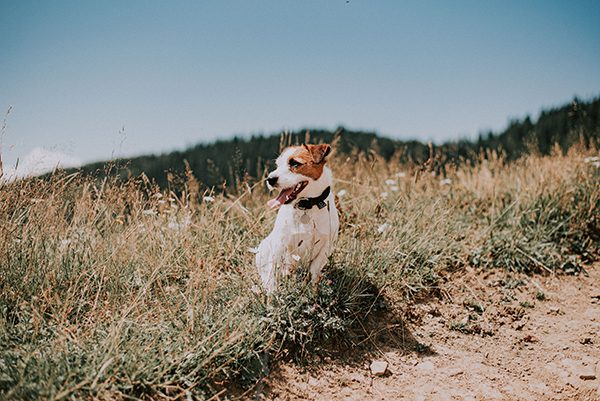
What to know before you Adopt A Jack Russell Terrier
1. History
2. Types
3. Temperament & Personality
4. Life Span
5. Are They Hypoallergenic?
6. Smooth, Rough Or Broken Coat
7. Size & Weight
8. Training
9. Health Issues
10. Food
1. History
As with many breeds, Jack Russells have quite an interesting history. They are named after the person who created them, Parson John Russell. Their origin can be traced back to the mid 1800’s in Southern England. The idea behind the breed was an agile and determined terrier that could force foxes out of dens where they would then be chased down by hounds.
For many years, they were considered to be solely a working dog. However, times have changed and many people enjoy having these fur babies around as a companion.
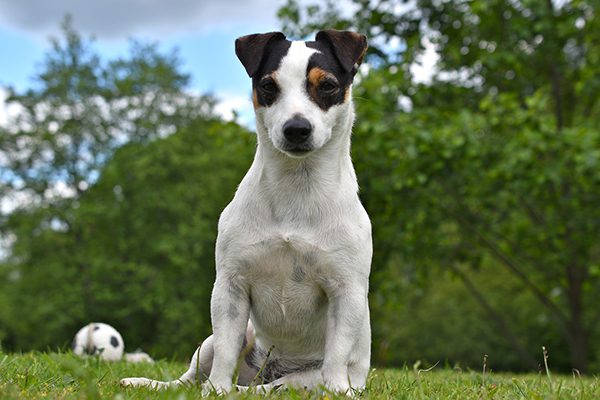
2. Types
You might be surprised to learn that this breed actually comes in three different types. While they may be very similar, they do have their differences. For example, the standard type usually has a short coat that is white in color with areas of brown. On the other hand, the Parson Russell has a much longer coat that is characterized with grizzle, tan or black markings. Lastly, Russell Terriers have a rectangular body shape. Their body length is typically just longer than their legs which gives them an incredibly unique appearance.
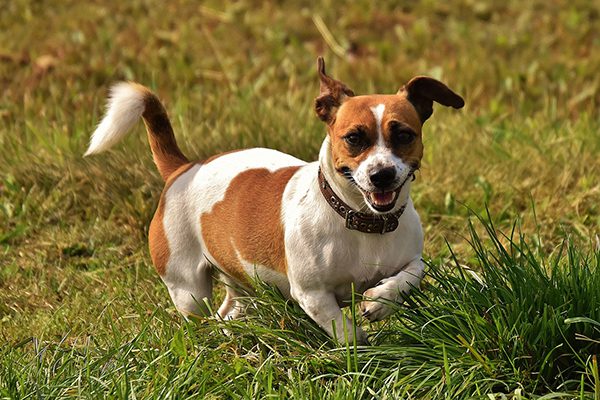
3. Temperament & Personality
This breed is well known for being loving, affectionate and loyal. However, they have many other characteristics and personality traits as well. For example, they are full of energy and for this reason require a lot of exercise. Also, they are fairly easy to train, especially when using the right techniques and starting from an early age. It is important to keep in mind that these fur babies can be stubborn from time to time so it’s important to establish who the boss is.
These fur babies also make amazing family dogs due to their friendliness with children, other dogs, and even strangers. On the other hand, they do have a strong prey drive so they may not fit in well when there are cats or other small animals in the home.
Also, they have a fair amount of adaptability when it comes to hot and cold weather, but they do prefer their climate to be somewhat on the cooler side.
When it comes to intelligence, these fur babies definitely come in above average. Their high level of intelligence definitely has its benefits, but it also creates a strong need for regular stimulation.
One of the most important things to keep in mind is while this breed may be smart, loyal, and affectionate, it may not be the best breed for a first time dog parent. They require a great deal of training, attention, exercise, and stability in order to remain happy. Also, while they may be smaller in size, this breed typically does not do well in apartments because they need room to run around and burn off excess energy.
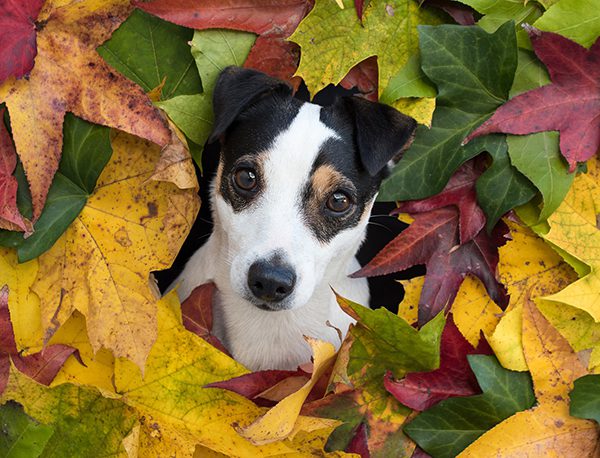
4. Life Span
Russells are typically very healthy and experience minimal health complications. For this reason, they often lead lengthy, healthy and happy lives.
In most cases, a Jack Russell Terrier life span is between 13-16 years. In some cases, they can even live much longer. Believe it or not, one named Willie even lived to be an astonishing 20 years old before passing away in 2014.
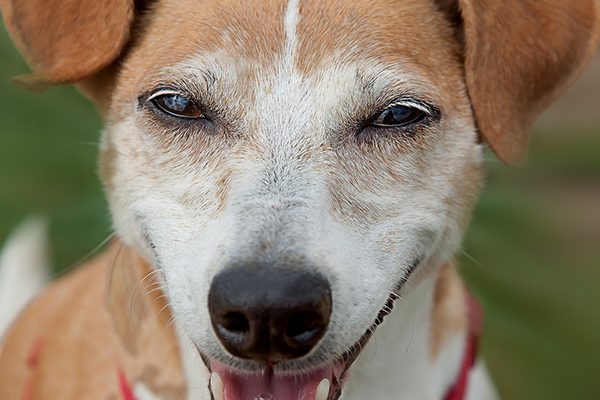
5. Are They Hypoallergenic?
Unfortunately, this is not a hypoallergenic dog breed. Russells have a high dandruff content in their fur which has the potential to cause allergies as well as complications with asthma. The good news is that if you’re really committed to bringing one home, there are some things you can do to limit allergy irritation.
The three main things you will want to do are:
- Brush regularly to reduce loose fur and dandruff.
- Vacuum frequently, especially where your furry friend sleeps.
- Use lint rollers or brushes on clothing to remove dandruff and fur.
6. Smooth, Rough Or Broken Coat
This breed has three different types of coats, each with their own care needs. Knowing more about each of these coat types will help you better understand which is the best fit for your needs and your lifestyle.
Smooth Coat: This is the easiest coat type to take care of. All of the fur lays in one direction which makes grooming a breeze. It’s characterized by short hair around the legs, face and body. The important thing to keep in mind is to not let the name of this coat fool you. Even though smooth is in the name, the hair should not be soft. Coarseness is necessary when it comes to protection from rain and snow.
Rough Coat: As the name suggests, Russells with a rough coat are much coarser. Russells with this type of fur typically have longer hair than those with a smooth coat. Also, their hair will lay in several different directions. This type of coat can be more challenging to groom properly, but the longer fur and coarseness provides protection from almost any type of element you can think of. This coat type is best for colder environments that receive a large amount of snow and rain.
Broken Coat: A broken coat is actually just a combination of a smooth and rough coat. It’s easy to spot thanks to its characteristics such as patches of long hair growing through shorter patches. Surprisingly, it doesn’t necessarily make grooming more complicated and it offers a great deal of protection from the elements.
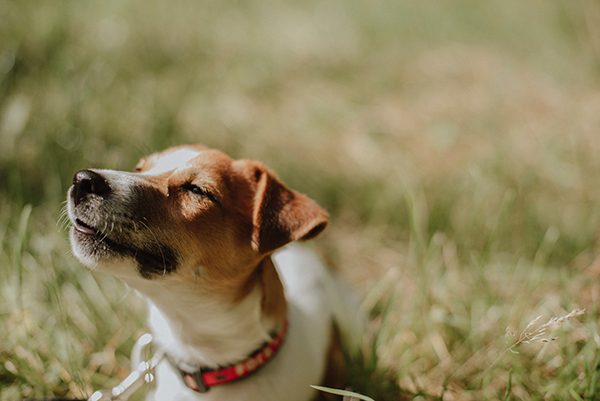
7. Size & Weight
Typically speaking, this breed will stand between 10-15 inches at the shoulder once full grown. When it comes to weight, a healthy Russell should weigh between 13-17 pounds. One thing you should be aware of is the fact that this breed is prone to weight gain issues when they don’t receive proper exercise. Becoming overweight can pose several risks on the health of these fur babies so a proper diet and regular exercise are a must.

8. Training
Russells do best when they are exposed to some type of training with obedience being most important. The good news is that thanks to their high level of intelligence, training is not overly complicated. In fact, you can see results in as little as 2 weeks.
Here are some tips to follow during your training routines.
- Begin training as soon as possible.
- Clicker training tends to be quite effective with this breed. (Make sure to offer rewards)
- Train in a quiet, distraction free environment.
- Start with basic commands such as sit, stay, lay down, and come.
- Make a routine and train at the same time daily.
- Keep training sessions short.
- Consistency is key.
- Focus more on positive reinforcement than correcting negative behaviors.
- Maintain your patience. This is crucial!
- Never push your dog further than what they are comfortable with.
- Consider professional training when needed.
- Never do anything to harm the bond between you and your dog.
Now that you know some basic tips, you’ll want to experiment with different training methods to see which works best for your Russell. Remember, no two dogs are exactly alike and neither are their training needs.
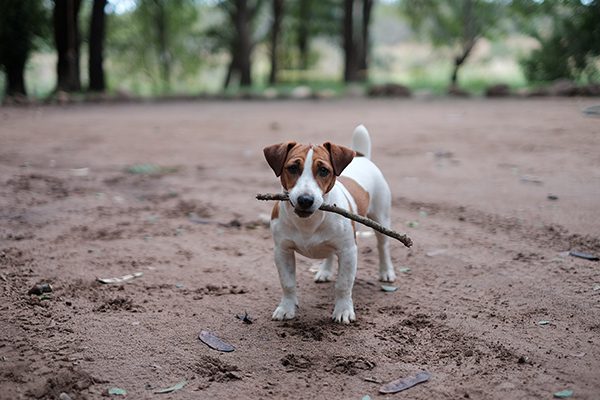
9. Health Issues
Russells are typically healthy dogs, especially when their human takes proper care of them. However, there are some potential health problems that you should be aware of.
Here are the 5 most common health issues this breed faces.
- Deafness
- Glaucoma
- Patellar Luxation
- Progressive Retinal Atrophy
- Lens Luxation
Keep in mind, the sooner something is done about these issues the better. Signs and symptoms may not always be visible so regular check ups at the vet are highly recommended.

10. Food
Being packed full of energy, it’s important that dogs from this breed eat a diet that is nutrient rich as well as high in protein. You’ll want to seek out high quality brands that contain fish, poultry, beef, or turkey protein. It’s also important to keep in mind that Russells do best when they eat a diet that combines both wet and dry food. Typically speaking, you’ll want to keep the ratio as close to 75% dry food to 25% wet food as possible. When able, you should also seek out fresh ingredients.
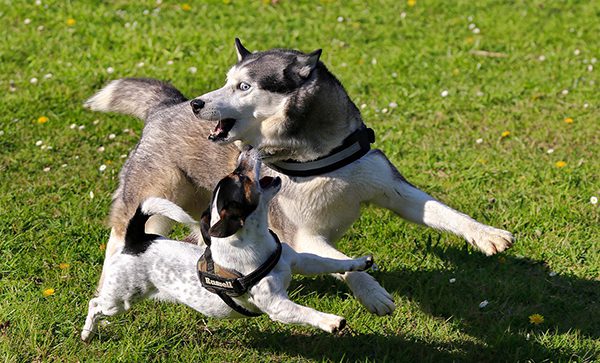
Frequently Asked Questions:
Do Jack Russell Terriers Shed?
Yes, all three different coat types from this breed do tend to shed. They tend to be moderate to high shedders. The good news is that you can avoid large messes and even irritating allergies with regular baths, frequent vacuuming, and weekly brushing.
How Much Do Jack Russell Terriers Cost?
Prices from a breeder can easily range between $800-$2,500, but there is absolutely no reason to have to pay that much. Russells can often be found in rescues and shelters. Adoption fees will cost you much less. Plus, you’ll get to hold your head up high as you add an addition to your family while saving a life at the same time.
Are Jack Russell Terriers Smart?
Yes, they are an incredibly intelligent breed of dog. The only downside to how smart they are is that it can sometimes lead to stubbornness. However, it also leads to easy training which is definitely a plus.
Are Jack Russell Terriers Aggressive?
No, this is not an aggressive dog breed. However, they do have a strong prey drive that can lead to chasing smaller animals. Also, lack of stimulation can lead to behavior issues.
Do Jack Russell Terriers Bark A Lot?
Since they were bred as working dogs, it is in their nature to bark, sometimes excessively. The good news is that proper training can correct this behavior. However, it is unlikely that you will be able to train a Russell not to bark at all.








